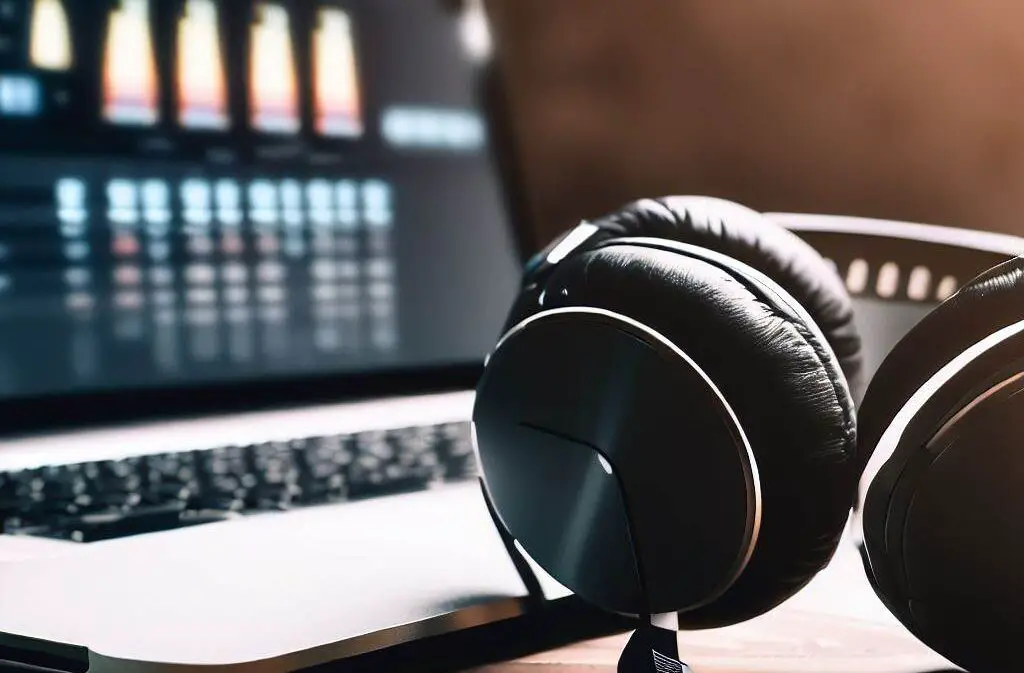Headphones are one of the most valuable tools one can utilize to avoid unpleasant parts of the week. Few people love to go on a jog in the early morning hours, but their disdain is contained with the aid of their favorite tunes to accompany them.
The author of this article would sooner recruit a herd of roaming bovines to clean up their yard instead of mowing it, but the urge to hire lawncare cattle dissipates as their playlist gets into the swing of things. So when this vital piece of your day starts to malfunction, you begin to feel it weighing down the rest of your routine.
There are a discomforting number of ways that your trusty earbuds can falter on you, but perhaps one of the most difficult issues to find a solution to is that annoying echo that you are likely all too familiar with.
Thankfully, this disorienting and distracting problem can be fixed once we know where to look for the problem. Sit back and try not to tear apart your headphones as we look at the reasons why your music sounds like it is being projected from the bottom of a well.
7 Fixes For Echoing Headphones
There are a few reasons that headphones echo, though the majority fall under microphone interference and minor incompatibilities between your headphones and the device they are connected to.
We are going to go over each solution from the most simplistic fixes to others that are a bit more complicated.
Try not to stress – every one of these fixes can be done by anyone regardless of their technological expertise (or lack thereof).
1. Disconnect The Headphones and Reinsert Them
It feels chastising to even say, though sometimes this really is the easiest and simplest way to fix that annoying echo in your headphones.
If the connection is faulty or obscured it can cause audio issues and often this can be fixed by simply removing and reconnecting the headphones. If you are using wireless Bluetooth earbuds or headphones, it may be useful to forget the connection and reestablish the Bluetooth pairing to see if that solves your echo issue.
For some solutions, we will offer step-by-step guides when needed. However, I won’t insult your intelligence by giving you detailed instructions on how to take out a pair of headphones.
2. Turn off or Disable Your Microphone
Anyone who has had to construct any level of a sound setup knows how frustrating audio interference can be.
The echo heard in your headphones is more than likely due to your microphone picking up unwanted audio, if you do have a working microphone close enough to where audio is output. Depending on the microphone you are using you can accomplish this by muting it, disconnecting it, or disabling it.
If you are using your headphones with a computer or laptop, typically you can disable the microphone in the audio settings or “Bluetooth & Other Devices” tab, if it’s a USB microphone.
3. Listen To Your Music At A Reasonable Level
While I shudder to think of the hypocrisy of me telling anyone else to lower their volume, those extra decibels might be responsible for the duplicated noise you are hearing.
This is especially true for those noticing this echo happening exclusively on their computer, where most people notice this issue. The maxed-out volume can and often will be picked up by either the computer’s hardwired microphone or an external one nearby.
Another thing to note (which we will cover in greater length below) is that having too many different electrical devices near each other can create some truly nauseating audio interference localized entirely in your hearing holes.
4. Keep Away From Other Electrical Devices
Have you ever been talking to a relative or friend who is sitting near a fan and it sounds like they are in the eye of a hurricane?
Well, this annoying perk of trying to cool off can affect more than your ability to comprehend grandma. It can also be felt in electronic household items, microphones (they really are a menace, folks) and even the device your headphones are connected to.
To avoid echo try to rearrange the electrical feng shui of your room or immediate vicinity to be more accommodating to your headphones and see if that doesn’t help.
5. PC Users: Check for Updates
If this problem seems to only exist whenever you plug your trusty pair of JBLs into your home computer, then the problem may not be with your headphones at all. What you are going to need to do is update the audio drivers on your computer.
This process is both simple and quick, and the steps are easily understood.
- Type“Device Manager” into your search bar and click on the first result.
- Navigate to “Sound, video and game controllers” and click on the arrow for the dropdown menu.
- Right-click and update your default audio driver (For Windows 10 this is typically Realtek High Definition Audio Device).
If the problem was incompatibility with your computer’s audio hardware, this will fix the issue. If not, we still have two more fixes to go!
6. Use Your Headphones With Alternative Devices
Even if this doesn’t universally fix the ailment of echoing headphones, it can at least target the problem area and offer some different methods to listen to music.
Typically speaking, the echo problem seems to come most from computers and video game consoles.
If this sounds true to your personal experience, try using your headphones on another device. Is the echo gone? Then you can breathe slightly easier knowing that your headphones aren’t irrevocably damaged.
If it does stop the echo, your headphones are having compatibility problems with the device you are trying to use them with. The quickest way to fix this would be looking to update audio drivers (seen above), you can try to update the system software for video game consoles or even adjust microphone settings.
All of the previous solutions still hold true if you find that your device is the cause of the echo, you just have to know where to look for the cause.
7. Reconfigure The Headphone Settings
If you notice that none of the previous options have worked in fixing the infernal echo coming through your earbuds, the best solution going forward would be to look through your headphone settings.
Whether it be in an app, on the device your earbuds are connected to, or through a menu found on the headphones, trying to adjust the settings may actually help fix the recurring echo.
If your headphones allow you to hear yourself, sometimes this may result in you hearing the echo you are currently trying to get rid of.
If you can hear yourself and the noise in your environment, it may be time to turn off what is known as sidetone. This will either be found on your microphone or headphone settings and can be very annoying and distracting for some. If this rings a familiar bell, it may fix the problem entirely.
Deciding When It’s Time for New Headphones
Despite our best efforts, there may come a time when no amount of troubleshooting can solve the echo problem. Or, it may be that the cost, in terms of time and effort, to fix your headphones outweighs the cost of simply purchasing a new pair. But how can you tell when it’s time to retire your beloved headphones?
Irreparable Damage: If your headphones have physical damage, such as a torn speaker cone or a broken jack, it may be time to replace them. Similarly, water damage or damage from dropping your headphones can be difficult, if not impossible, to repair.
Outdated Technology: If your headphones are several years old, they may not have the latest technology, such as noise-canceling features or high-definition audio. In these cases, you may choose to upgrade to a newer model.
Consistent Audio Issues: If you’re constantly battling audio issues like the echo problem described in this article, it may be time to replace your headphones. While it’s true that these problems can often be fixed with some troubleshooting, at some point the time and effort spent on repairs may outweigh the benefits of keeping your old headphones.
Comfort and Fit: Even the best sounding headphones can become a nuisance if they’re uncomfortable or don’t fit properly. If your headphones cause discomfort during long listening sessions, or if they frequently fall out or slip off, it may be time to consider a new pair.
In the end, only you can decide when it’s time for new headphones. But by considering these factors, you can make an informed decision that balances cost, effort, and your overall listening experience.
Wrapping Up
Headphones are a massive help to get through the grind of our everyday life, but they certainly can be tiresome to work with at times.
Hopefully, this article has made your life a little bit easier and allowed your earbuds to start working more favorably.
If you find that you are regularly facing microphone or headphone issues, you may want to look into other articles here on Swift Moves. Whether it be Airpod issues, Bluetooth pairing frustration, or much more – we likely have an article on it.
FAQs
Why is the echo only noticeable on certain songs?
This can happen if the echo is actually part of the song’s recording or mixing process, which is not uncommon in certain music genres. Additionally, songs with a lot of reverb or ambient noise may exacerbate the echo effect in your headphones. Trying different songs or genres can help you determine whether the echo is a headphone issue or part of the music itself.
I’ve tried all your solutions and my headphones still echo, what now?
If you’ve exhausted all these solutions and your headphones still echo, it may be an internal hardware issue. You might want to consider getting your headphones professionally checked or even thinking about investing in a new pair.
Do all headphones eventually develop an echo?
Not necessarily. Echoing in headphones can occur due to a variety of factors, including microphone interference, settings incompatibilities, physical damage, or outdated technology. However, good-quality headphones that are well-maintained and used under normal conditions should not inherently develop an echo.

